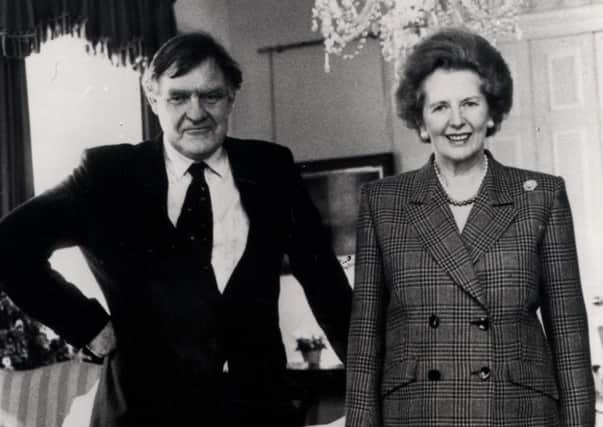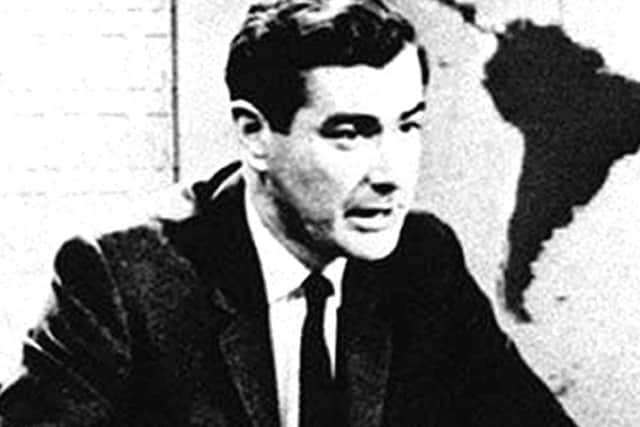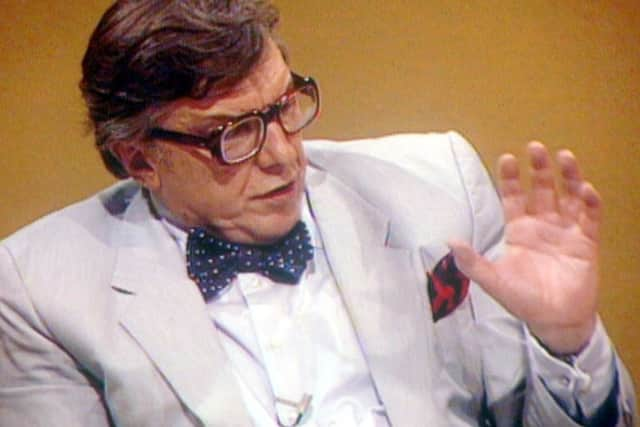Bernard Ingham: Prime Minister has no obligation to flatter egos of TV bosses


She clearly had little idea how I would do this. Nor, I found, had she much basis for complaining when she felt her message was not getting through.
After all, she wilfully refused to read newspapers and was but a casual listener and viewer. She was often resistant to media interviews. “Why do I have to do this when I have a Press secretary?” she used to complain. Because, I said, you are you and I am me and there is a big difference. That shut her up.
Advertisement
Hide AdAdvertisement
Hide Ad

I mention these fond memories because the broadcasters are up in arms about Theresa May ignoring them at the recent Tory party conference. I can hear Mrs Thatcher saying “Diddums” from her grave.
Only a few days ago they were complaining Mrs May was robotic, a brick wall that, Dalek-like. uttered only the words “Brexit means Brexit”.
It does not take much imagination to see what TV was after: the torment of a PM at bay, on the defensive and hackneyed with it. They could not care less about the politicians’ message, only the histrionics. That’s what gets bums on sofas, not serious communication.
Advertisement
Hide AdAdvertisement
Hide AdTelevision’s singular contribution to the modern world is to reduce the average person’s attention span to that of a gnat. And, judging from the six TV organisations’ complaint to No 10, they have about as firm a grasp of the fundamentals of democracy as Jeremy Corbyn. “For a functioning democracy, it is vital that in turn the politicians and in particular leaders and even Prime Ministers are also questioned and held to account in one-to-one interviews,” they wrote.


Bunkum. It is for an elected Parliament to hold the Government to account, not unelected, preening TV anchormen seeking bloodsport.
If they are so passionate about an open democracy, they might at least recognise that politicians should be free to talk to who they like – and not at TV’s dictation.
Advertisement
Hide AdAdvertisement
Hide AdIt is not as though these self-important TV folk were excluded from the party conference or prevented from giving us wall-to-wall politics.
It may well be that people will argue that I had it good in my day in No 10 with Sir Robin Day, Alastair Burnet and Brian Walden (as well as radio’s Jimmy Young) doing “blockbuster” interviews, up to one hour long, with Mrs Thatcher. There is some truth in this. I think they shared Brian Walden’s approach: to help politicians, under often tough questioning, to communicate both their policies and personality to the people.
But all this does not dispose of the eternal problem: how to reconcile the politician’s availability and interests with demanding and proliferating broadcasters. In short, how to keep the relationship on an even keel.
In fact, the broadcasters have not proliferated all that much since my day. Mrs Thatcher used to give at least six short broadcast (radio and TV) interviews after, for example, European or Economic summits. I made sure the interests of newspapers were safeguarded by having a Press Association reporter sitting in on each. Too often it is forgotten in these broadcast-dominated days that the Press actually provides a basis for studying what a politician has said as distinct from the superficial impression provided by TV.
Advertisement
Hide AdAdvertisement
Hide AdTrying to look at the problem from the current No 10 point of view, they have to handle a rather cold fish – though warmer after her dancing on to the party conference stage – who is not fast on her feet. They will naturally be protective. Moreover, their objective is to bring home a real Brexit amid all the razzamatazz surrounding it. Let’s keep the temperature down, they will say.
But the media, in all its variety exists, is not going to go away and needs to be managed. You cannot manage them by running away or confining yourself to favourites.
Assuming that 40 years on I am not hopelessly outdated, I think the job of Mrs May’s Press secretary – who is he or her? – is to give her confidence to take on all-comers by rehearsal and detailed preparation. It is not difficult to anticipate reporters’ or interviewers’ questions.
Advertisement
Hide AdAdvertisement
Hide AdI would then arrange substantial interviews regularly throughout the year on the basis of fair play. TV could help itself by agreeing to “pool” – i.e. share interviews. They can’t have it all their own way.